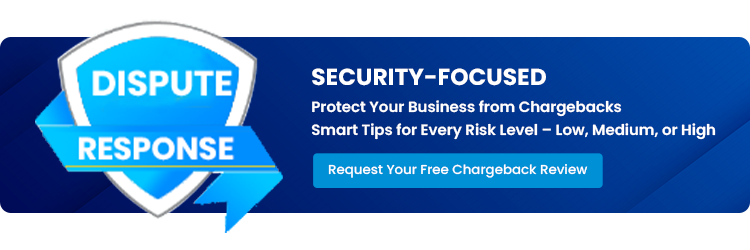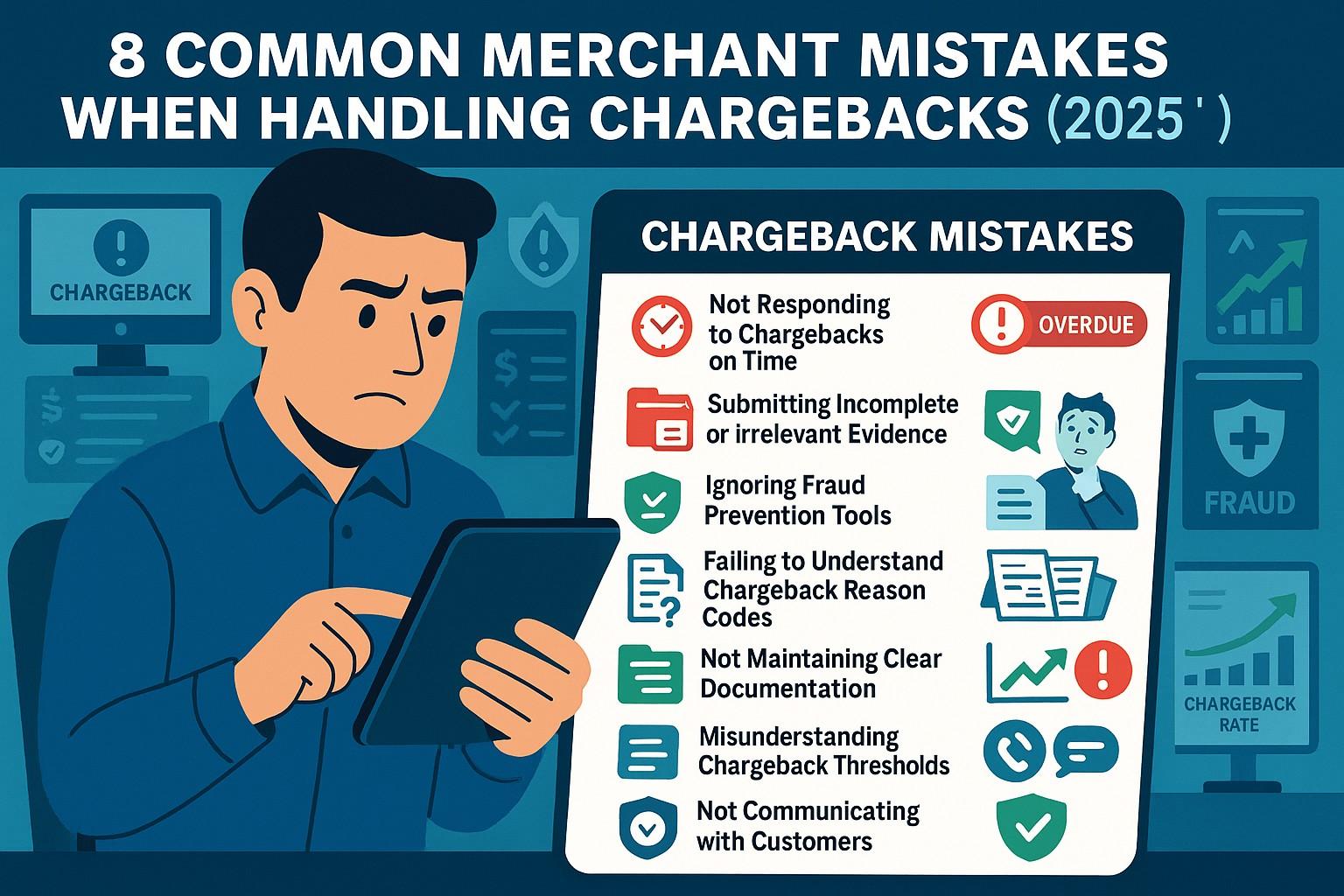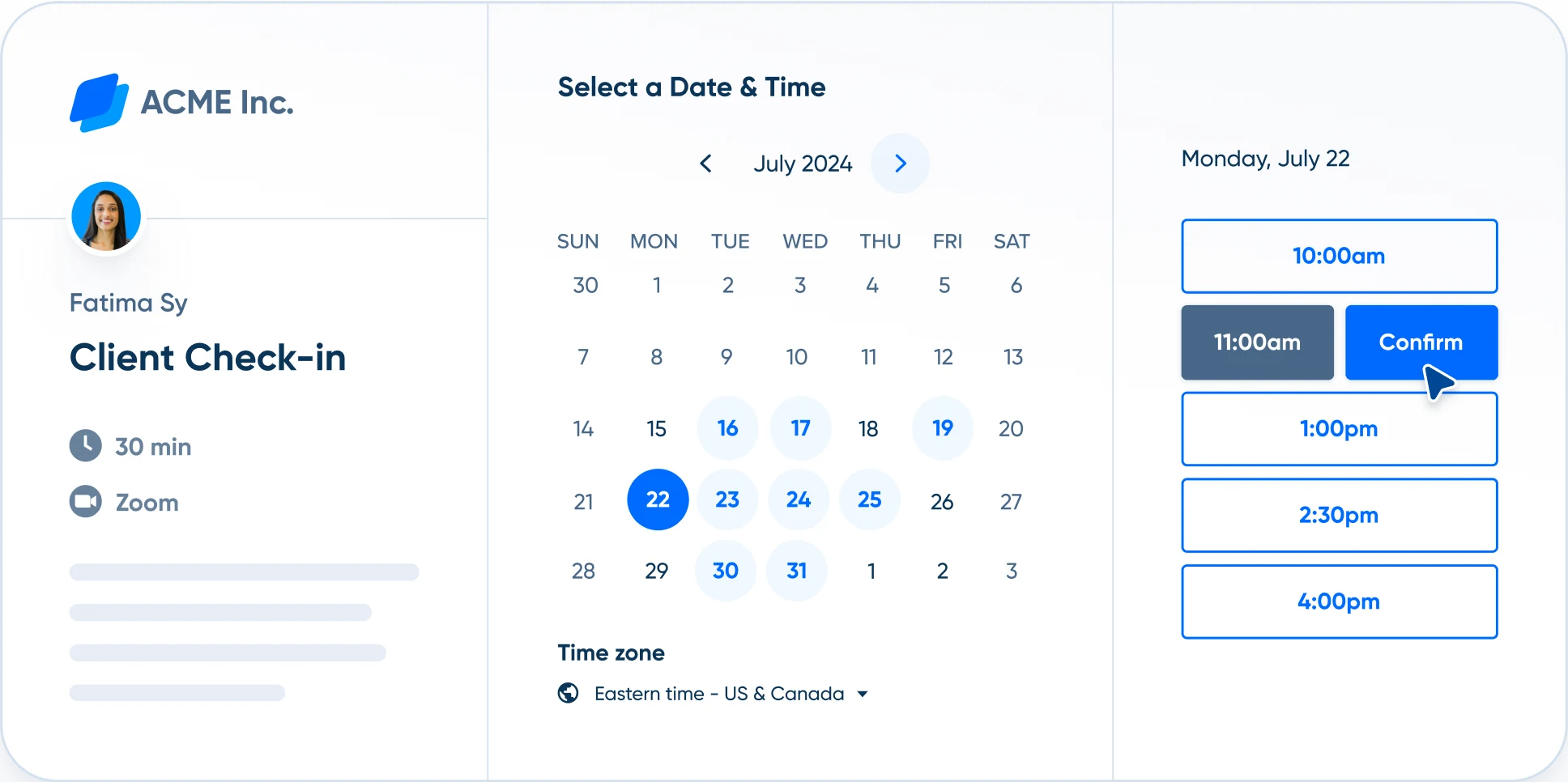Chargeback Management Services - Dispute Response Sep/ 29/ 2025 | 0
Handling chargebacks can be a complex process, and many merchants often make mistakes that can affect their business’s bottom line. In 2025, staying proactive and informed is essential to minimize chargeback risk. Here’s a look at 8 common mistakes merchants make when handling chargebacks and how to avoid them.
1. Ignoring Chargeback Notifications
Ignoring or delaying action on chargeback notifications can result in losing the dispute by default. Merchants must stay on top of chargeback alerts from payment processors and respond promptly.
How to Avoid This Mistake:
- Set up real-time notifications from your payment processor.
- Develop an internal process for immediate review and response.
2. Failing to Keep Detailed Transaction Records
One of the most frequent causes of chargeback losses is the lack of clear documentation for transactions. This includes customer communications, shipping records, and service agreements.
How to Avoid This Mistake:
- Keep detailed transaction records, including receipts, customer communications, and shipping or delivery proof.
- Use digital systems to manage and store records securely.
3. Not Understanding Chargeback Reason Codes
Each chargeback reason comes with a code, but many merchants fail to understand what these codes mean and how they can impact their dispute resolution strategy.
How to Avoid This Mistake:
- Educate your team on chargeback reason codes.
- Use these codes to guide your dispute response and tailor evidence accordingly.
4. Relying on Generic Responses
Using one-size-fits-all responses for chargeback disputes can be ineffective, as each case requires a unique approach.
How to Avoid This Mistake:
- Customize responses for each chargeback dispute based on the specific details and evidence.
- Always tailor your responses to the particular chargeback reason code.
5. Failing to Implement Proactive Fraud Prevention Measures
Many chargebacks occur due to fraud. Failing to implement fraud prevention measures can lead to an increase in chargebacks.
How to Avoid This Mistake:
- Implement fraud prevention tools, such as AVS (Address Verification System), CVV checks, and 3D Secure.
- Regularly monitor and update fraud detection systems.
6. Not Having a Clear Return and Refund Policy
An unclear or overly complicated return and refund policy can lead to chargebacks. Customers may charge back if they are dissatisfied with how their refund request is handled.
How to Avoid This Mistake:
- Clearly outline your return and refund policy on your website.
- Ensure that all staff members are well-versed in the policy and can handle customer inquiries efficiently.
7. Overlooking the Importance of Customer Service
Poor customer service often leads to chargebacks. If a customer feels their concerns are not addressed promptly, they may resort to a chargeback.
How to Avoid This Mistake:
- Offer responsive customer service through multiple channels.
- Resolve issues as quickly as possible to avoid escalation to chargebacks.

Email us anytime!
Email customer service 24/7

Call us anytime!
Reach customer care 24/7 at +1 (888) 927-5152
8. Not Using Chargeback Management Software
Manual chargeback management can be time-consuming and error-prone. Without the right software, it’s challenging to track disputes and manage responses efficiently.
How to Avoid This Mistake:
- Invest in chargeback management software to automate the process and improve tracking.
- Use analytics tools to gain insights into chargeback trends and optimize your response strategies.
By avoiding these common mistakes, merchants can significantly reduce chargeback risks and improve their overall chargeback management strategy. In 2025, the key to effective chargeback handling lies in being proactive, informed, and using the right tools and processes to stay ahead of potential issues.


